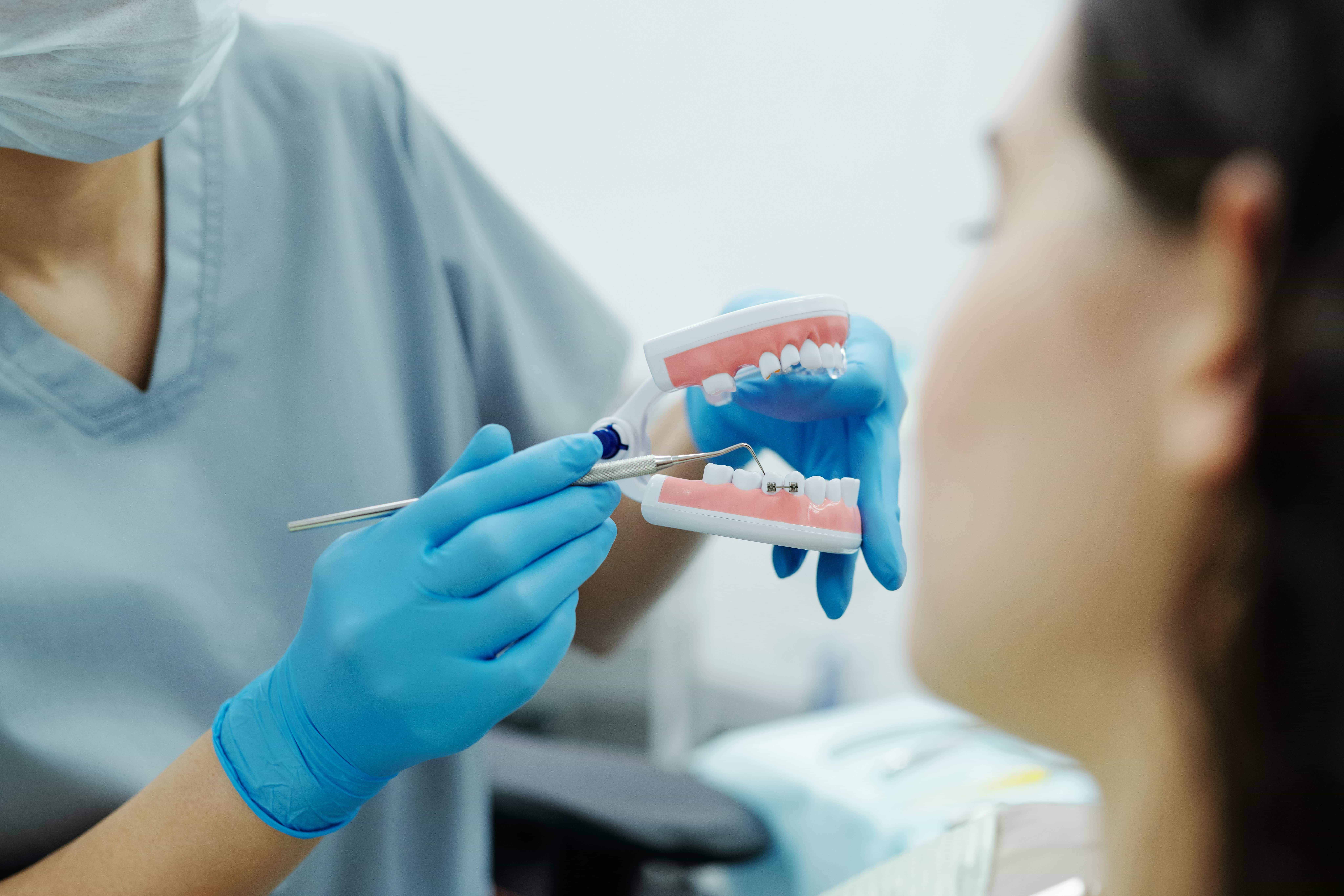If you’re considering getting braces, you’re probably wondering about every part of the process, including whether your orthodontist will numb your mouth during the procedure. After all, the idea of having metal pieces bonded to your teeth might sound a little intimidating. Rest assured, the process is more comfortable than you might expect!
Let’s explore this common question in detail.
Key Takeaways
- Braces are a common orthodontic treatment used to correct misaligned teeth and bite issues.
- Typically they do not numb you for braces because it is not a painful process.
- Before getting braces, your orthodontist will thoroughly examine your teeth and create a personalized treatment plan.
- During the initial consultation, you will also have the opportunity to ask any questions or voice any concerns about getting braces.
- Braces are made up of brackets, wires, and bands that work together to gradually move teeth into their desired positions.
- It is important to properly care for your braces by regularly brushing and flossing, as well as avoiding certain foods that can damage them.

Do They Numb You for Braces?
The short answer is no, your orthodontist generally does not numb your mouth when you get braces.
This is because applying braces is a completely non-invasive procedure. There are no needles, incisions, or drilling involved in the process that would require numbing or anesthesia.
Instead, the process revolves around cleaning your teeth and bonding the brackets onto them. While you may experience some pressure or minor discomfort, there’s typically no pain during the application of braces.
Wondering what the full process feels like? Here’s what to expect:
Applying Braces – Step by Step
- Teeth Cleaning – The orthodontist will thoroughly clean and dry your teeth to prepare them for the bonding process.
- Brackets Application – Special dental glue is applied to the surface of each tooth, and the brackets are carefully placed one by one. The glue might taste slightly odd, but it’s completely safe.
- Curing Light – A special blue light is used to harden the glue and ensure the brackets are securely in place.
- Archwire Placement – The metal archwire, which connects all the brackets, is threaded through and secured with tiny elastics.
- Adjustments and Final Check – The orthodontist will make sure everything is aligned correctly and feels comfortable.
The entire procedure typically takes about an hour or two, and you’ll be able to go home immediately afterward.
What About Discomfort After Getting Braces?
While the application process itself isn’t painful, you may experience some discomfort in the days following. This occurs as your teeth begin adjusting to the pressure exerted by the braces.
Here’s what you might feel and how to handle it:
- Tenderness: Your teeth and gums might feel sore or sensitive for a few days after getting braces. This is completely normal and temporary.
- Mouth Irritation: The brackets and wires can sometimes rub against the inside of your cheeks, causing minor irritation. Orthodontic wax can be applied to smooth out any rough spots.
- Adjusting to Eating: You may need to stick to soft foods like soup, yogurt, and mashed potatoes for the first few days to ease any discomfort while chewing.
To ease soreness, over-the-counter pain relievers like ibuprofen can be used, and rinsing with warm salt water can help soothe irritated tissues.
Why Don’t They Numb Your Mouth?
Your orthodontist doesn’t numb your mouth because there’s no need for it. Unlike procedures such as tooth fillings or extractions, getting braces is a straightforward process that doesn’t involve the type of pain or invasive techniques that require anesthesia.
Instead of numbing, the orthodontist prioritizes making the environment as comfortable as possible. At practices like Derek Damon Orthodontics, every step is designed to ensure patients feel relaxed and well-informed about their treatment.
Do They Numb Your Mouth for Braces Tightening?
Another related question involves whether orthodontists numb your mouth during braces adjustments or tightening appointments. The answer is again no, as tightening braces involves simple adjustments to the wires or elastics.
You might feel some pressure or tightness afterward, but this typically subsides within a day or two as your teeth adjust. Regular adjustments are a key part of your orthodontic treatment process, helping to guide your teeth into their ideal alignment over time.
With advanced orthodontic technologies like the Damon Braces offered at Derek Damon Orthodontics, modern brace adjustments are designed to be even more comfortable. These self-ligating braces reduce friction and pressure, providing a more efficient treatment with less discomfort for patients.
What Else Should You Know About Getting Braces?
If you’re still feeling nervous, here are some tips to help you mentally prepare for your braces appointment:
- Ask Questions: Your orthodontist is there to help. Don’t hesitate to ask them about any details of the process that concern you.
- Bring a Distraction: Listening to music or a podcast during your appointment can make the time go by faster.
- Plan Ahead: Stock up on soft foods and orthodontic supplies like wax and a soft-bristled toothbrush before your braces are applied.
At Derek Damon Orthodontics, we focus on providing a supportive and comfortable experience to every patient, whether you’re a child, teen, or adult starting out with braces. With personalized treatment plans and state-of-the-art technology, we aim to get you closer to your dream smile as efficiently and comfortably as possible.

FAQ
Q: Do they numb your mouth when you get braces?
A: No, numbing is not necessary for the placement of braces. However, patients may experience some discomfort during and after the appointment.
Q: Can you eat solid foods with braces?
A: It is recommended to stick to soft foods for the first few days after getting braces to allow your mouth to adjust. After that, you can gradually reintroduce harder foods into your diet, but it’s important to avoid sticky or hard foods that could damage your braces.
Q: How often should I brush my teeth with braces?
A: You should brush your teeth after every meal and snack while wearing braces. This will help keep your teeth clean and prevent food from getting stuck in your brackets or wires. It is also important to floss at least once a day, using special tools like floss threaders or interdental brushes to clean around your braces.
Q: Can I still play sports with braces?
A: Yes, you can still participate in sports and physical activities with braces. However, it is important to wear a mouthguard while playing to protect your teeth and braces from any impact or injury.
Your Smile Journey Starts Here
Now that you know what to expect, the idea of getting braces probably feels less intimidating. While no numbing is needed for braces, you can trust your orthodontic team to ensure the process is smooth and stress-free.
If you’re ready to take the first step toward a confident and beautiful smile, we’d love to help! Schedule a consultation at Derek Damon Orthodontics in Bellingham or Anacortes, WA, and discover why patients trust us for cutting-edge orthodontic care.

